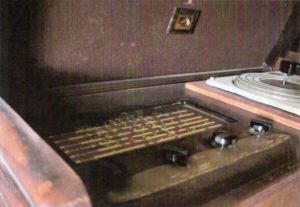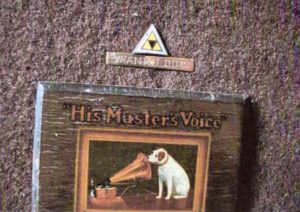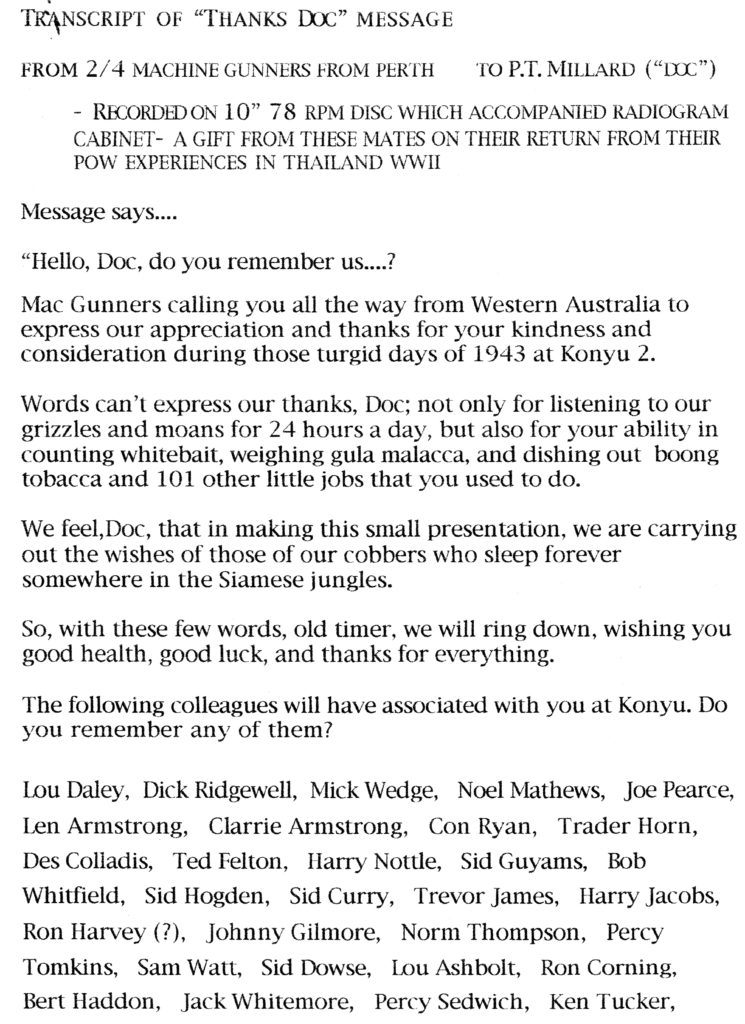DR PHIL MILLARD Capt. 2/26th Battalion
‘D’ Force S Battalion
Commanding Officer: Major Schneider, 2/10th Field Artillery
5 Officers for 580 POWs
140 men from 2/4th MGB
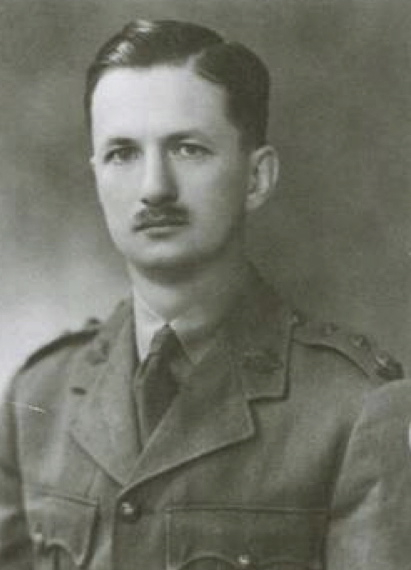
During five months at Kanu II, Hellfire Pass Cutting Phil Millard never failed to sit with his patients in the sickness hut and cholera compound, often through the night.
Cholera hit this camp end of May 1943
12 POWs would die
By Mick Wedge:
“Throughout those dreadful days in 1943, on the Burma Railway, I was posted to KANU No. 2 Camp with one hundred and forty 2/4th Machine Gunners. The officer in charge of this camp was Major Schneider 2/10th Field Artillery. Other officers that were also there were Captain Bill Gaden 2/19th Battalion, Lieutenant Ken Schultz 2/10th Field Artillery and Captain Phil Millard, Medical Officer. A total of five officers and five hundred and eighty men.
The camp didn’t exist, we had to hack it out of the jungle and erect tents that were full of holes. When the rains came, the camp became a complete quagmire. Phil Millard was concerned with the increase in the number of sick men, both with Malaria and Dysentery, and wondered if a hut could be built to keep these sick men off the ground. It was typical of Phil, he worked harder than anybody cutting bamboo and lashing it all together and putting on a roof of palm fronds. He had very little treatment for anything.
The men came to idolise him as he would always sit and talk to them. I slept next to Phil in our tent. At 2am and 3am, most nights, he would get up and I used to ask him “what was the matter?” He would reply “I have two or three men in the sick hut and they won’t live much longer so the least I can do is to sit with them and let them know that somebody cares.”
Cholera hit our camp at the end of May, 1943. Phil felt that a compound of two tents should be erected about 1 kilometre from the main camp to isolate Cholera patients. We soon had our first patients. Phil was so concerned because he had no treatment for them. He got permission from the Japanese Guard Commander of our camp to visit the main KANU camp to see if he could obtain some tubing and bottles for drip treatment for Cholera patients. He saw Colonel Dunlop but unfortunately he came back empty handed. Over the following two months, we lost twelve men to Cholera. Phil spent hours in the sickness hut and Cholera Compound.
One of my men was one of the worst cases with Cholera, Jim Gilmour, but he survived and only died recently (in 2008 at the age of eighty one). Jim always said he owed his life to Phil Millard. Phil was a tower of strength to all of those men who survived those dreadful five months in KANU 2 Camp.
After the War, Phil and I kept in touch with each other. He became a senior Surgeon at a large Public Hospital in Sydney. At all of our reunions since the War, the Machine Gunners always asked had I heard from Phil Millard and to convey their best wishes to him. Phil and his wife, Joan, came to Western Australia in early 1970. As I worked at Hollywood Hospital from 1945, until 1979, I had employed fifty one Machine Gunners at the Hospital. I asked Phil to come over to the Hospital and see some of the old faces. I could not move in my office after he arrived, they were so pleased to see him. ”
Phil Millard operated on Tom Hampton by oil lamp – a most difficult operation – a perforated gastic ulcer. It was Christmas 1944 Tom became seriously ill and was carried by stretcher from Linson Wood Camp (where there were no facilities for such an operation) to 201 km Camp, where earlier in the evening there had been a Christmas pantomine. Please read further about Linson Wood Camp
When Tom Hampton needed an emergency stomach operation, Bill Carlyon was among the prisoners who carried him 2km through thick Thai jungle to an Australian surgeon, Phil Millard. In the darkness of night Dr. Millard dressed in his Christmas concert costume with a dim oil lamp for lighting faced a most difficult operation – a perforated gastric ulcer. Hampton survived – another patient did not.
Tom Hampton’s Recollection to Dr, Phil Millard
‘I can clearly remember that night being carried to the Theatre ? (such as it was) there seemed to be some jungle mist or smoke about and it gave me an eerie feeling. I well remember the tins filled with oil and wicks – also I can recall you coming to see me from a concert, you seemed to be dressed in a striped top – something like an old time bathing costume. I also remember the other doctor but didn’t realise that he played such a vital part in urging you to operate – so to me he is the World’s greatest Urger. I can recall the other poor unfortunate chap who didn’t make it – thinking that after he had died that I might only have a few hours to go myself. I stayed a few days at your camp then was taken back to the timber camp’. (Linson Wood).
Toilet hygiene was the most effective way to prevent cholera.
Capt Millard pulled no punches and told the men.
‘If you don’t make it to the latrine, you will infect some of your mates and they will surely die as a result of your carelessness and stupidity. If you get caught short on your mission, you are the same as a murderer.’
New and very deep trenches were dug with four strong timber planks across it. A new pathway was cleared through the jungle scrub so those in need could reach it quickly.
The never ending rains filled the trenches to near the top and the area became muddy and worse the wooden planks became precariously slippery. One or two men slipped and had to be assisted out.
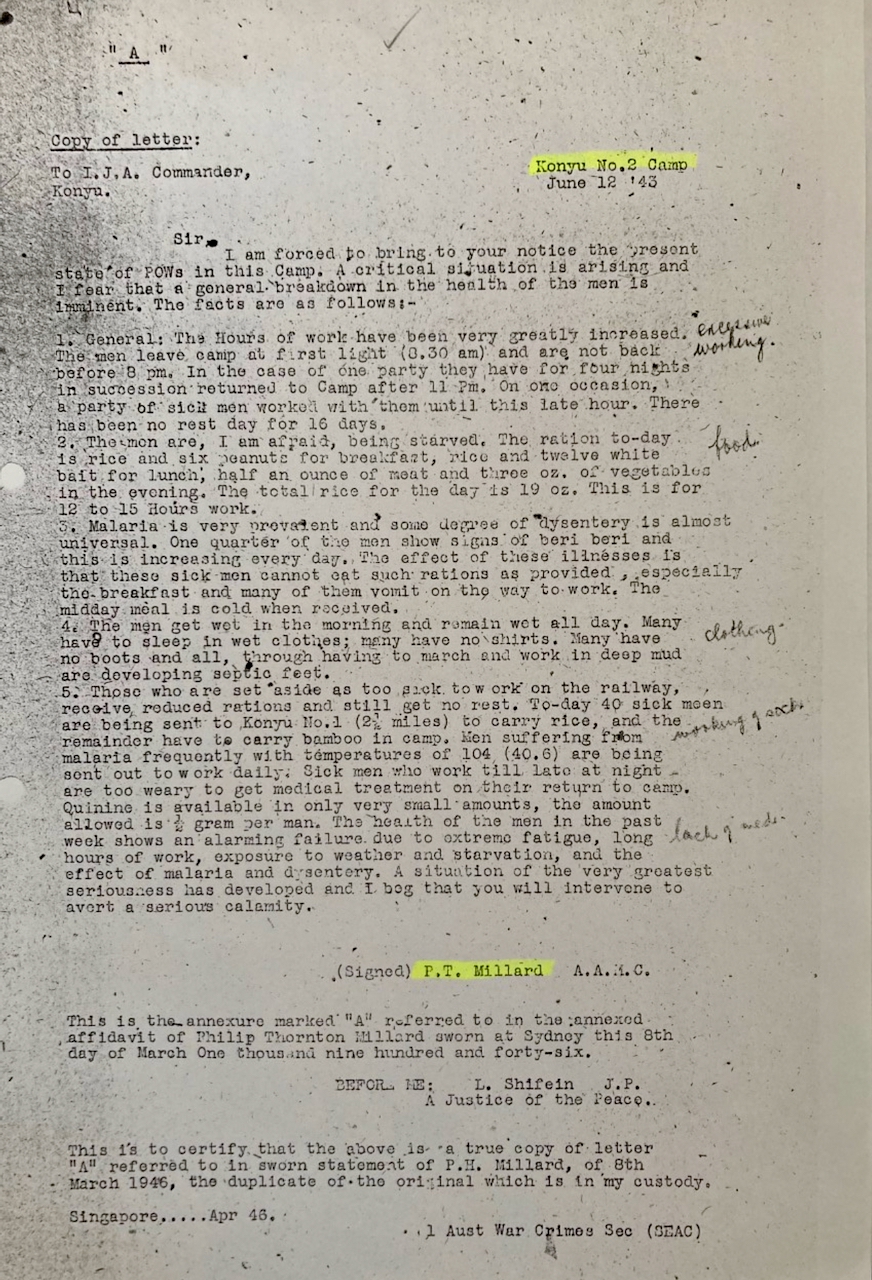
Phil Millard died in November, 2001.
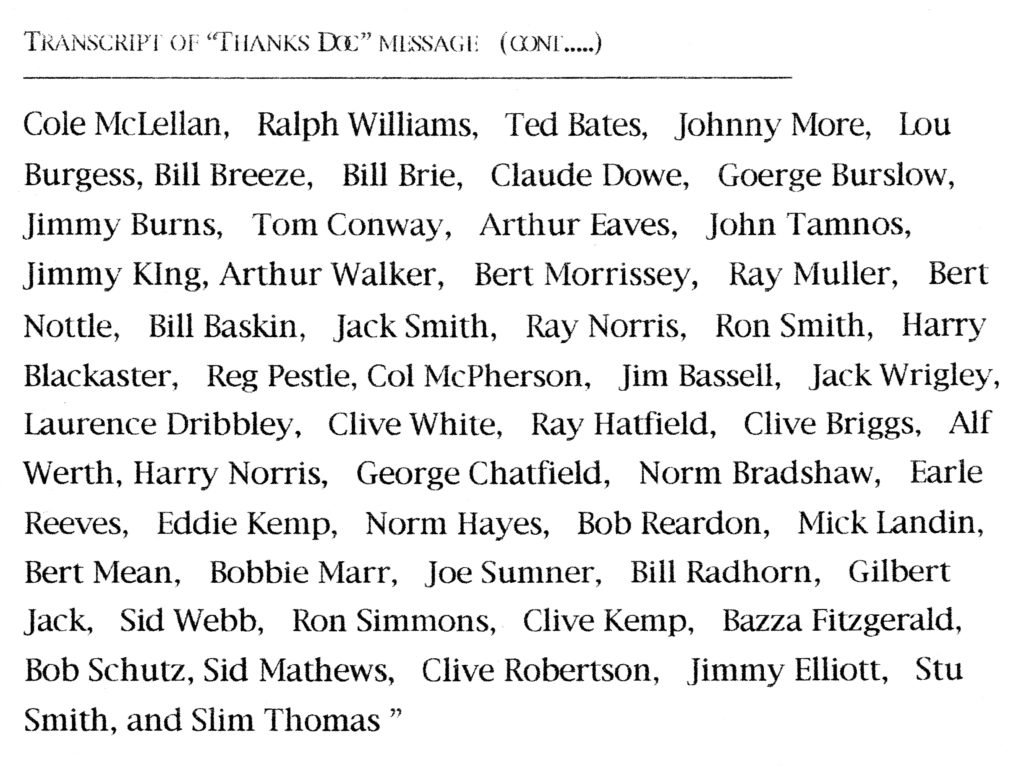
Please note:
1) not all of the above are 2/4th men
2) There are several names spelt incorrectly (such as Gilmore instead of Gilmour)
Capt Phill Millard………..from Borehole Dec 2001
Phil Millard who would best be remembered for his outstanding work at Konyu II, passed away 23 November 2001. Mick Wedge placed a notice in the West Australian which reads as follows:
Millard, Doctor Phil A sincere tribute to a wonderful Doctor and a terrific bloke. Always remembered by the 2/4th Machine Gun boys from Konyu II Camp on Burma Railway, 1943. Deepest sympathy to Joan and family.
You may wish to read more detail of Phil Millard’s Burma-Thai days from Peter Winstanley’s interview.
Please listen to Dr Phil Millard’s interview at AWM

